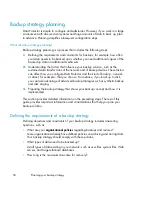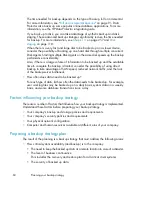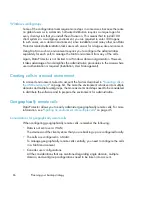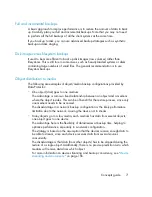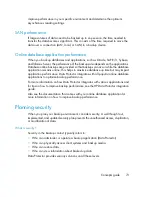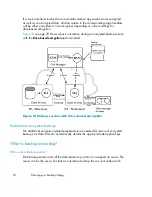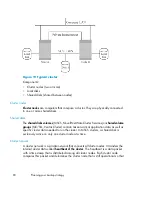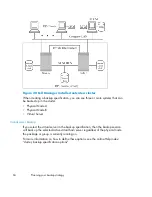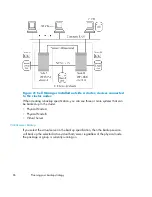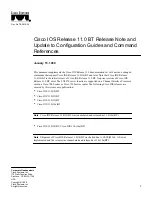
Disk performance
All data that Data Protector backs up resides on disks in your systems. Therefore, the
performance of disks directly influences backup performance. A disk is essentially a
sequential device, that is, you can read or write to it, but not both at the same time.
Also, you can read or write one stream of data at a time. Data Protector backs up
filesystems sequentially, to reduce disk head movements. It also restores files
sequentially.
Sometimes this is not visible because the operating system stores most frequently used
data in a
cache memory
.
Disk fragmentation
Data on a disk is not kept in the logical order that you see when browsing the files
and directories, but is fragmented in small blocks all over the physical disk. Therefore,
to read or write a file, a disk head must move around the whole disk area. Note that
this differs from one operating system to another.
TIP:
Backups are most efficient for large files with little fragmentation.
Compression
If data is compressed on a disk, the Windows operating system first decompresses
the data before sending it across the network. This reduces the backup speed and
uses CPU resources.
Disk image backups
Data Protector also allows you to back up UNIX disks as disk images. With a disk
image backup, a complete image of the disk is backed up without tracking the
filesystem structure. The disk head moves linearly across the surface. Thus a disk
image backup can be considerably faster than a filesystem backup.
Disk Agent performance on Windows systems
Disk Agent performance of Windows filesystem backup can be improved by enabling
asynchronous reading. Asynchronous reading improves performance of the Disk
Agent when backing up data on disk arrays, especially if large files are backed up.
It is recommended to perform test backups to establish if asynchronous reading will
Planning your backup strategy
72
Summary of Contents for B6960-96035
Page 17: ...Overview of backup and automated media copy sessions 340 105 Concepts guide 17 ...
Page 20: ...20 ...
Page 22: ...Publication history 22 ...
Page 132: ...Planning your backup strategy 132 ...
Page 182: ...Media management and devices 182 ...
Page 186: ...Users and user groups 186 ...
Page 204: ...The Data Protector internal database 204 ...
Page 218: ...Figure 62 Direct SIP integration example Service management 218 ...
Page 242: ...Integration with database applications 242 ...
Page 264: ...Synthetic backup 264 ...
Page 274: ...Split mirror concepts 274 ...
Page 288: ...Snapshot concepts 288 ...
Page 344: ...Further information 344 ...
Page 402: ...Glossary 402 ...

